Mental Edge Monday
Mental Edge Monday
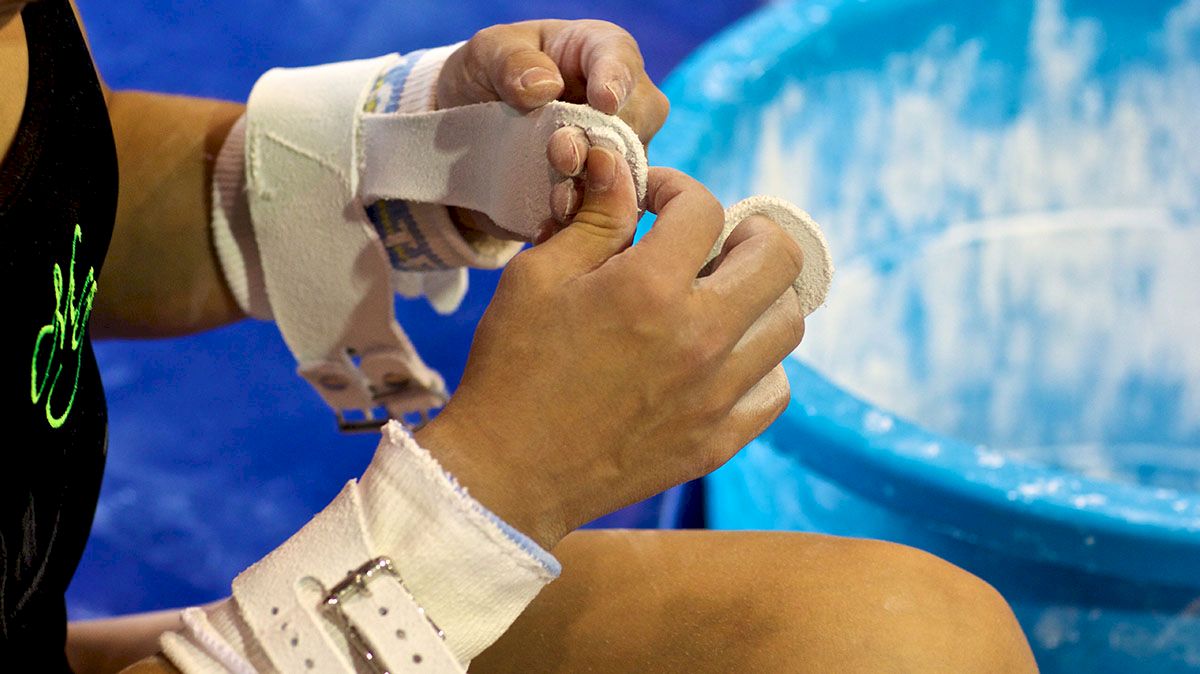
Gymnastics is a sport of immense skill that cannot be acquired overnight. But just as important as it is to train your body to achieve the perfect balance of flexibility, power and grace to execute feats that defy the laws of gravity, it is equally, if not more important to train your brain to withstand the obstacles along the way.
Knowing how crucial cerebral cultivation is to the sport, we’ve decided to bring back the psychological series: Mental Edge Monday.
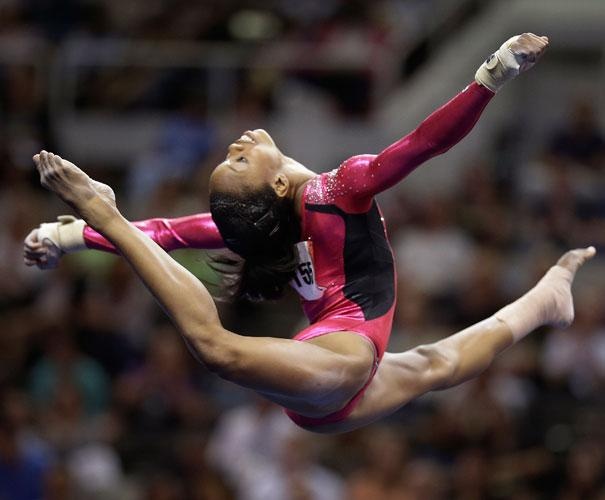
For this week’s MEM, we’ve chosen to start off simple by tackling the topic of verbal cues. Among other things, verbal cues are essential to a gymnast’s performance. They are intricately woven into the fabric of gymnastics, yet at the same time hidden in plain sight. When you break it down, verbal cues are essentially all about staying in the moment and being self-aware. It is a way to ensure that mind and body are one as you perform gravity defying feats. Every correction a coach gives, words of encouragement from a teammate, and the cheers of the crowd are all forms of verbal cues that can affect your performance. But, the most significant verbal cues a gymnast should be aware of are the ones that come from themselves.
Whether it’s whispered quietly, or within the sanctuary of your own mind, or possibly even yelled out loud (we don’t exactly recommend the last one), it is perfectly okay, and in fact important, to talk to yourself. If you’ve never really thought about what you actually think about during your routine, it’s about time that you did. How do you pick just a few words from a seemingly endless list of possibility? The best way to find out what works for you is trial and error. It may be that you need cues for every skill, before the routine, or just that last tumbling pass, but the verbal cues you choose to use are just as unique as the way each gymnast has their own special way of chalking up.
Unless the skill is named after you, chances are that you aren’t doing it perfectly; try talking yourself through each skill by using the corrections your coach gives you. “Square hips. Tight core. Open shoulders.”
Before every routine, maybe a few words of encouragement will help. “I CAN DO THIS!” Some people need to be psyched up, while others need to calm down and some need a little of both. “Relax. Put your body where you want it and GO!”
Or in the event that you face the ugly monster called “Fear,” maybe you need a completely random word that will provide that split-second distraction from the anxiety so that your muscle memory can take over. What kind of random word, you ask? It could literally be anything but it needs to be meaningful to you, and only you. As a former gymnast myself, I would have to say the word “mango” before every single Tkachev on bars. Even though it’s completely unrelated to what I was physically doing, it worked for me for the rest of my gymnastics career.
Which leads us to the final and most vital piece of putting together your verbal cue puzzle: repetition. For verbal cues to be effective, they need to be repeated. Every single routine. Every single practice. Every single meet. Once you find cues that work for you, don’t change them!
As the great philosopher, Aristotle, once said:
“We are what we repeatedly do. Excellence, therefore, is not an act but a habit.”
Tune in next week for another installment of Mental Edge Monday! But, before you go, what are some MEM challenges you’d like to see answered? Comment below!
Related:
Related Content
 Replay: Lander vs Mars Hill | Mar 28 @ 6 PM
Replay: Lander vs Mars Hill | Mar 28 @ 6 PMMar 29, 2024
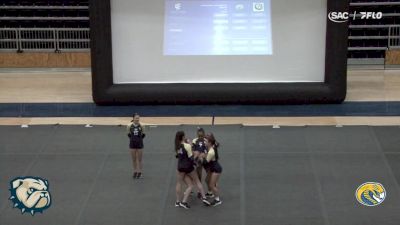 Replay: Coker vs Wingate | Mar 21 @ 6 PM
Replay: Coker vs Wingate | Mar 21 @ 6 PMMar 22, 2024
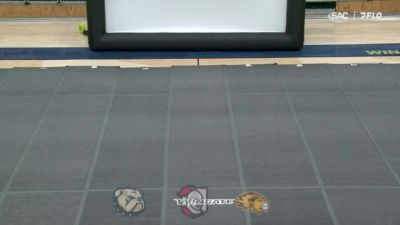 Replay: Wingate Tri-Meet - Acrobatics & Tumbling | Mar 15 @ 5 PM
Replay: Wingate Tri-Meet - Acrobatics & Tumbling | Mar 15 @ 5 PMMar 15, 2024
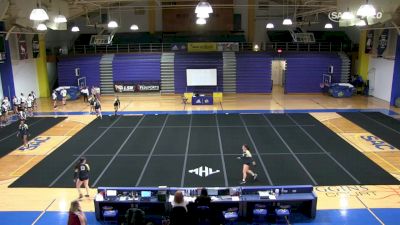 Replay: Mars Hill Tri-Meet | Feb 16 @ 6 PM
Replay: Mars Hill Tri-Meet | Feb 16 @ 6 PMFeb 17, 2024
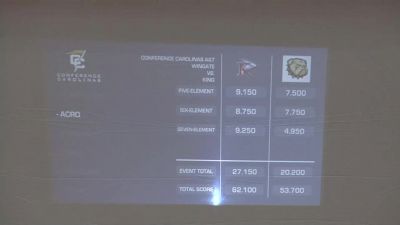 Replay: King (TN) vs Wingate - 2024 2024 King (TN) vs Wingate - Acrobatics & Tumbling | Feb 10 @ 4 PM
Replay: King (TN) vs Wingate - 2024 2024 King (TN) vs Wingate - Acrobatics & Tumbling | Feb 10 @ 4 PMFeb 10, 2024
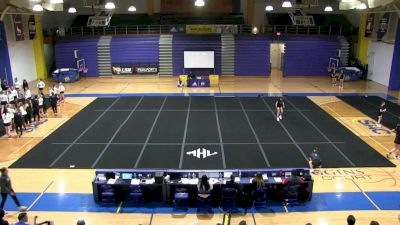 Replay: Belmont Abbey vs Mars Hill | Feb 10 @ 3 PM
Replay: Belmont Abbey vs Mars Hill | Feb 10 @ 3 PMFeb 10, 2024
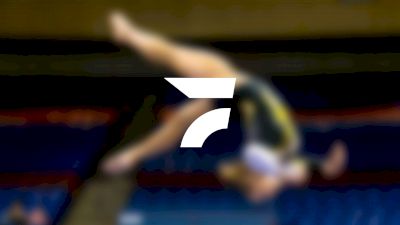 How to Watch: 2024 King (TN) vs Wingate - Acrobatics & Tumbling | Gymnastics
How to Watch: 2024 King (TN) vs Wingate - Acrobatics & Tumbling | GymnasticsFeb 10, 2024
 How to Watch: 2024 Wingate Tri-Meet | Gymnastics
How to Watch: 2024 Wingate Tri-Meet | GymnasticsFeb 8, 2024
 How to Watch: 2024 Wingate Tri-Meet | Gymnastics
How to Watch: 2024 Wingate Tri-Meet | GymnasticsFeb 8, 2024